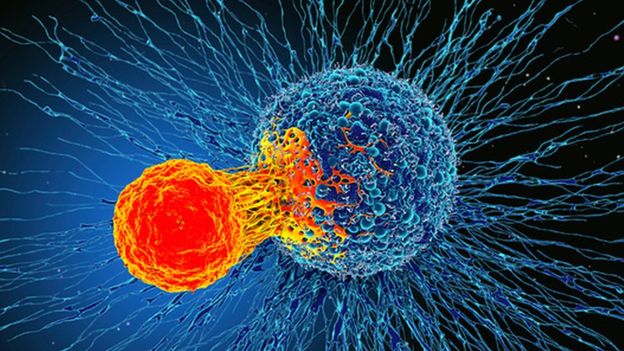A newly-discovered part of our immune system could be harnessed to treat all cancers, scientists say. The Cardiff University team discovered a method of killing prostate, breast, lung and other cancers in lab tests.
The findings, published in Nature Immunology, have not been tested in patients, but the researchers say they have “enormous potential”. According to BBC, experts said that although the work was still at an early stage, it was very exciting.
Our immune system is our body’s natural defence against infection, but it also attacks cancerous cells. The scientists were looking for “unconventional” and previously undiscovered ways the immune system naturally attacks tumours.
What they found was a T-cell inside people’s blood. This is an immune cell that can scan the body to assess whether there is a threat that needs to be eliminated.
The difference is this one could attack a wide range of cancers. “There’s a chance here to treat every patient,” researcher Prof Andrew Sewell told the BBC. He added: “Previously nobody believed this could be possible.
“It raises the prospect of ‘one-size-fits-all’ cancer treatment, a single type of T-cell that could be capable of destroying many different types of cancers across the population.” T-cells have “receptors” on their surface that allow them to “see” at a chemical level.
The Cardiff team discovered a T-cell and its receptor that could find and kill a wide range of cancerous cells in the lab including lung, skin, blood, colon, breast, bone, prostate, ovarian, kidney and cervical cancer cells. Crucially, it left normal tissues untouched. Exactly how it does this is still being explored.
